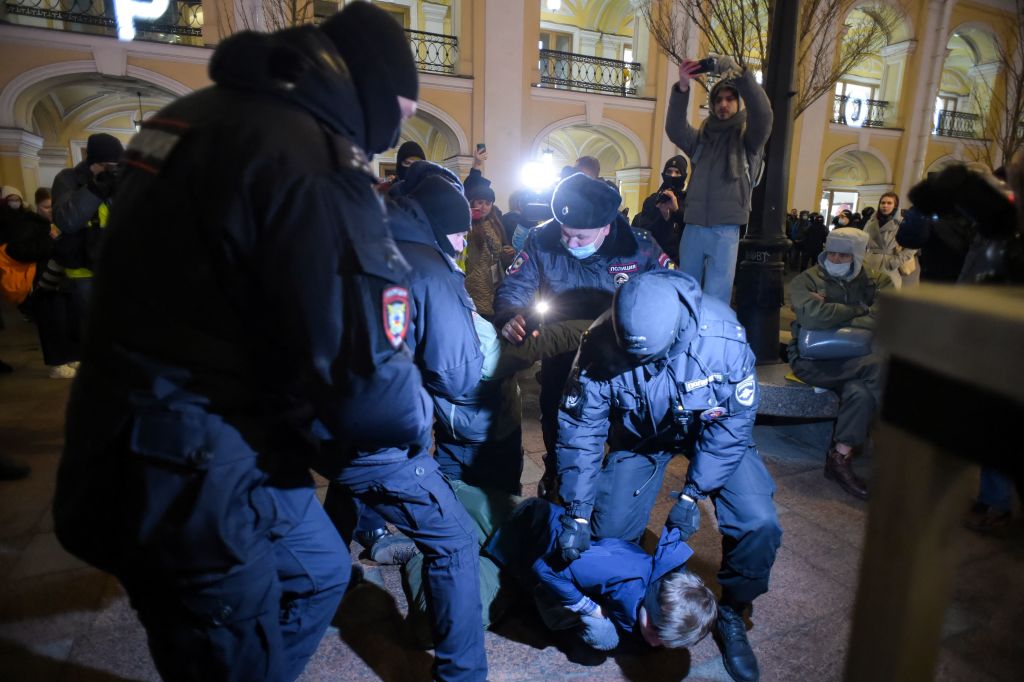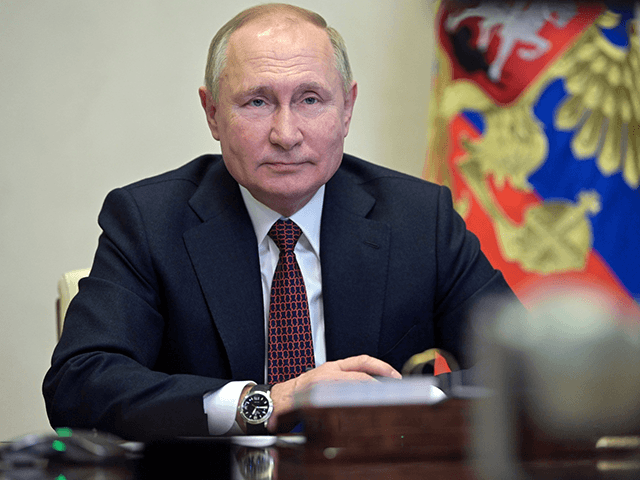Russia’s state-run Tass news service on Friday touted a poll that supposedly gives President Vladimir Putin an 81-percent approval rating.
Tass’s coverage omitted remarking on the violent police attacks on protests and mass arrests of people who questioned his invasion of Ukraine over the last few months or how they may have impacted the context for such a poll.
The poll, conducted by the All-Russian Public Opinion Research Center, claimed soaring public confidence in Putin’s leadership, with chart-busting approval for Putin himself and his United Russia party holding a 30-point advantage over its nearest competitor:
“When asked directly about confidence in Vladimir Putin, 81.5% of the Russians polled answered positively (plus 0.9%); the level of approval of the Russian president’s work from April 25-30 was 78.9% (plus 1.2% over the week),” the report notes.
The level of positive assessment of the Prime Minister and the Russian government over the past week amounted to 53% (+0.5%) and 52.8% (+1%), respectively. “Mikhail Mishustin is trusted by 63.5% of respondents (-0.2% over the week),” the report specifies.
Russian police have detained thousands of anti-Putin protesters over the past two months, sending a rather strong signal that approval of Putin’s job performance is mandatory. Multiple arrests for demonstrating against the war can result in lengthy prison sentences.

Police officers detain demonstrators during a protest against Russia’s invasion of Ukraine in central Saint Petersburg on March 2, 2022. (OLGA MALTSEVA/AFP via Getty Images)
Critics of Putin’s war in Ukraine have developed clever ways of expressing their discontent, including graffiti, improvised monuments, protest accessories that can be quickly hidden when the police approach, and subtle gestures that allow protesters to recognize each other. On May Day, protesters identified themselves to each other by feeding pigeons in parks that have the word “peace” in their names. Another popular tactic involves scribbling antiwar messages on small-denomination bills.
Speculation in Russia and abroad swirls around what Putin will do on Monday, the May 9 holiday celebrated as “Victory Day” in Russia to commemorate the defeat of Nazi Germany in World War II. Some sort of grand gesture to shore up political support and demonstrate defiance against the West seems inevitable.
Russian officials deny rumors that Putin will either declare victory in Ukraine or formally declare war against it. Until now, Putin has preferred euphemisms like “special military operation” for the invasion.
A formal declaration of war could pave the way for more aggressive military recruitment or outright conscription, giving Putin more meat to throw into the Ukrainian grinder.
The Moscow Times reported on Friday that Russian state enterprises seemingly unaffiliated with the military are running want ads for “wartime mobilization readiness and training,” a hint that Putin might be planning to deploy his reserves and begin full military mobilization, despite Kremlin denials that any such plan is under consideration.
On Friday, Reuters reported that Putin’s Victory Day address in Red Square will include flyovers from strategic military aircraft, including the top-secret “doomsday” plane meant to carry top Russian officials in the event of a nuclear war.

COMMENTS
Please let us know if you're having issues with commenting.